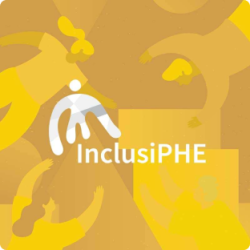Project description
For a Professional Higher Education Institution (PHEI) to be truly inclusive, it needs to reflect its diverse range of students. To achieve this, a PHEI should not just consider its study programmes, teaching, and learning processes. It should also aim for fully inclusive student engagement.
Student engagement includes student activism and involvement in decision-making bodies. It also includes the structures and practices of students’ organisations. These aspects of student engagement do not reflect the diverse PHEI community. They can be hard to access for non-traditional and underrepresented students.
The InclusiPHE project helped create a more inclusive student environment. It raised awareness for full student inclusion. It also gave PHEIs and their student groups ideas, guidance, and tools to make student engagement fully inclusive.
KIC role
Our team collaborated with the partners in the development of all intellectual outputs. We will in particular co-lead the
- development of the online toolkit
- creation of training resources for Inclusive Student Engagement(IO4)
We also acted as knowledge transfer specialist. In this role we provided support to the coordinator and partners in areas such as:
- internal and external communications
- development of a dissemination strategy
- impact assessment
- design of project website
- project branding materials

